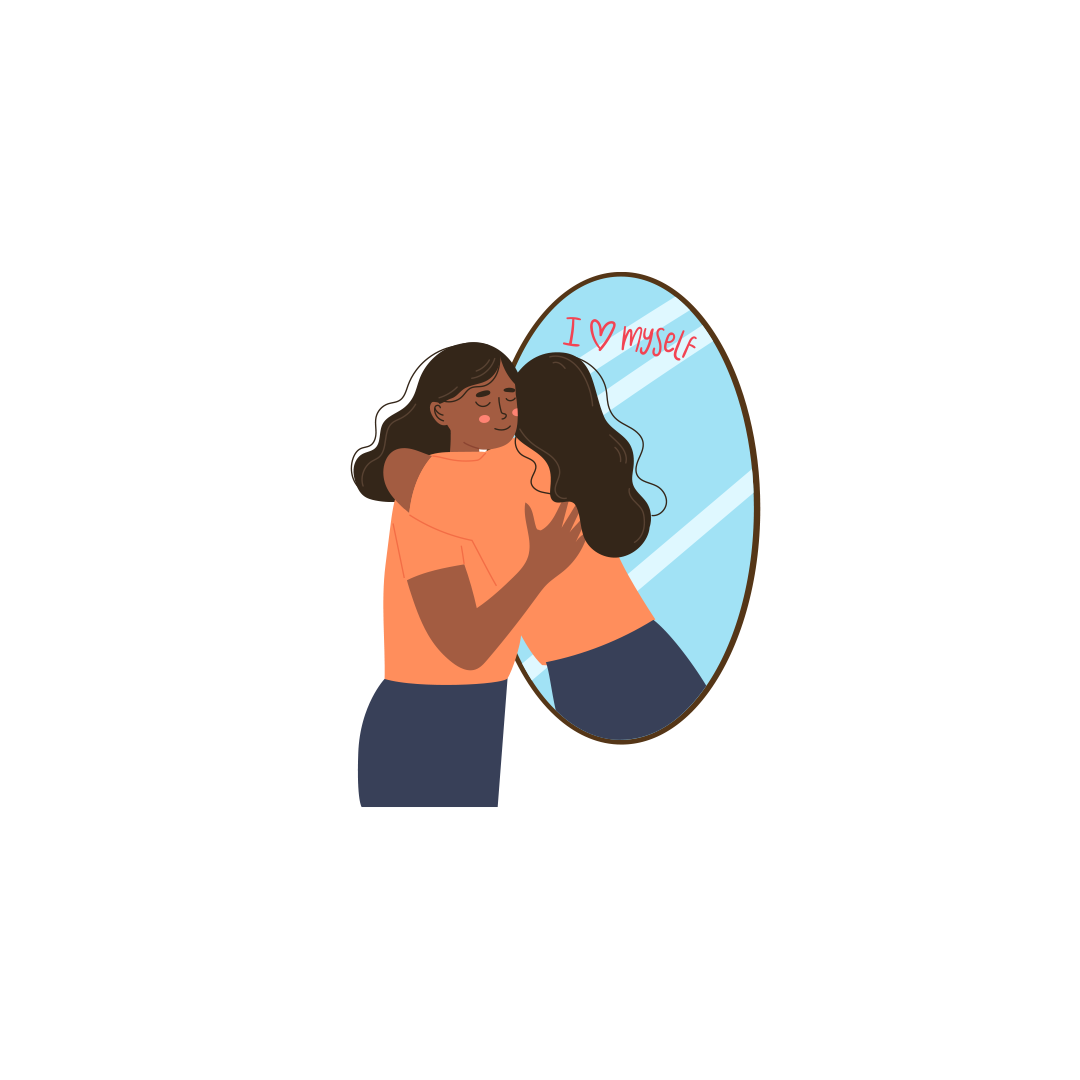When was the last time you stopped and listened to what your inner child - your inner voice - said?

... Have you ever crossed an ice cream stall and your heart pounded to get your favorite chocolate ice cream, with a cherry on top?
... Ever gone to a park and resisted the urge to go down the slide like a 4-year-old or throw your cares away on a swing?
THAT is the voice of your inner child wanting to act like a child again!
As adults, we consistently silence that voice, believing we need to think, act and carry ourselves like “grown-ups” everywhere and all the time (not totally wrong, by the way). As "grown-ups", we feel in charge of our lives and the lives of our tiny loved ones too.
But in the process of becoming parents, we often forget there is a child that lives inside us. Over the years, we learn to suppress that voice instead of listening to it and understanding its needs. As hard as we try to suppress our inner voice, it remains the main reason behind the way we behave, make choices, and react to certain situations in specific ways. Whether we acknowledge our inner child or not, he or she is always there on a subconscious level, so it's a good idea to start paying attention to their voice.
Looking back on our childhood is not always about swings and ice creams in the park. At times, it's also about neglected pains, perceived trauma, or ignored emotions. More often than not, our inner child surfaces when something in our environment triggers a strong emotional reaction. A "trigger" is a clue that some emotional need was left unmet or unattended in our childhood. And since you were likely taught to suppress such big feelings as a child, you don’t like anything that triggers uncomfortable emotions as an adult. This causes resistance to listening to the wisdom of our inner child.
In fact, many of the traits we developed through life until now are the result of what we experienced emotionally as children. And whether we believe it or not, this inner child has a huge role to play in what kind of parents we become.

Signs your inner child needs your attention:
The inner child version of you represents all your life experiences and memories at the subconscious level. It can have both positive and negative sides to it.
While your inner child remembers every small JOY you experienced as a kid and seeks to grab any chance to relive it, that child also recognizes the difficult emotions you went through and how you dealt with them. How you, as a young child, dealt with uncomfortable feelings, shapes your reactions to those triggers as you grow up.

That is why it is essential to listen to your inner voice, understand the hopes or fears behind it, and consciously process and resolve those unmet emotional needs. Re-parenting your inner child has many advantages:
Observe your body for any feeling or sensation when you are triggered. Be curious and inquire further about that feeling, without judgment. Is it a tingling sensation on your palms, sweating, increased heart rate, or a change in your breathing? Do you feel sudden rage, sadness, or fear welling up?
Half the battle is won as soon as you name the demon. Name the feeling underlying your response: is it a feeling of lack of understanding, fear of not being loved, anger, frustration, or fear of losing control or feeling unimportant?
Try to recall what triggered similar reactions or feelings when you were a child. Close your eyes and take yourself back to that moment in time. Then, with an open heart and curious mind, ponder over questions, like...
How did you feel in that moment? Any body sensations?

What were your senses picking up? Any particular sound or scent, touch or sight?
How did your parents respond? What were the usual reactions from your caregiver?
What were your coping mechanisms?
Were your emotional needs met?
Now, bring yourself back to the present moment and ask yourself...
What do you do when you see your child doing actions that you were not allowed to, do or punished and shamed for?
Do you react and immediately stop or punish or shame your child?
With this newfound awareness, think about why that particular incident could be triggering for you.
For more question prompts, download our free Guide to Reparenting your Inner Child here.
To consciously undo the impact of our upbringing and become conscious parents, the first step is addressing our triggers and where they might come from. Are there any old patterns emerging that you had received from your parents as a child? To delve more into those patterns, check out our free guide to Decode Old Parenting Patterns.
Every trigger is an opportunity to learn what to heal. Identify what you needed when you were a child- did you need to be heard, guidance, or support to carry on?

Remember, you are not blaming your parents for their ways of raising you. They did their best with the resources they had at that time. It was not that they intentionally ignored your feelings, but they were unable to give you the attention you needed due to the circumstances or their own human experience.
As a kid, we all look up to our parents for support, safety, and emotional strength, but our parents are humans, too. They can’t always be 100% available, but that doesn’t make them bad parents; it just makes them humans.
Re-parenting your inner child doesn’t mean finding the person responsible for these issues. Instead, it means accepting yourself the way you are, loving yourself unconditionally, and, most importantly, forgiving yourself for being hard on yourself in difficult times.
A few reminders:
Practice meditation/ tapping and journaling. Sit with your inner voice, listen to it patiently and connect with your inner child. You’ll be amazed at how much comes out and how much you can heal. You can use the amazing and super helpful resources that Susanna has designed just for you to make your journaling and re-parenting smoother and more effective.
Reach out to an expert. This is hard inner work, so don’t try to fix everything yourself. Reaching out and asking for help takes bravery and shows strength. Reach out to the expert and emotional intelligence coach, Susanna Nicol for the right guidance in self-healing.
It took repeated triggers/ actions/ tips to fall into the pattern; it will take more than one attempt to break that pattern. Be kind to yourself while going through the healing process. When you do this inner child work, you are not only healing yourself, but everyone around you will benefit.
Forgive yourself for the way you used to cope with hard times. Practice self-compassion, and be kind and gentle to yourself just as you would be towards a young child.
When anyone from my family sees my elder one for the first time, their instant reaction is: “Oh my God! She looks just like you!” Even her pediatrician declared, “she looks just like her mom,” when my daughter was three days old! Now, as I see her growing into an already independent human (at the age of 7 years), I cannot help but notice many of my traits in her, be it her smile, voice, food choices, or temperament.
What shocks (and honestly worries) me more is as I see her as a mini version of me, I also see a reflection of my mom in myself.

No matter how much I hated to hear the “words of wisdom” from my mom growing up like “Don’t sit like that!” or “Don’t chew so loudly,” I unknowingly hear myself repeating these to my daughters. No matter how much I told myself that some of the old parenting methods don’t work and some do more harm than good, I noticed I was returning to the same patterns when I was stressed, angry, or frustrated.
And I know I am not the only one who feels this way - in fact, this phenomenon happens with every parent. At some point in our parenthood journey, a glimpse, at times more, of our upbringing is bound to come up.
More often than not, we see ourselves repeating the same rules or warnings which we received from our parents when we were little, even if we swore to never repeat them.
“Go to bed right now!”
“I said, no more chocolate!!”
"Because I said so."
“Why don’t you guys listen until I start yelling?”
“You’re making mama mad right now.
"Don't you dare talk back to me!"
.... and the list never ends.
(if you wish to add your examples of mom dialog, you’re welcome to drop them in the comments.)

All behavioral patterns are a result of some underlying feeling or emotion. Instead of beating yourself up for saying something rude and mean to your kidz when you were angry, take a step back and see which emotion is behind this expression - is it coming from anger, fear, or worry? Or is it coming from a place of love, trust, curiosity and non-judgment?
Most of the time, our fears or worries drive us back to old methods that we saw our parents using on us. And there can be any reason for those emotions - fear of kidz getting hurt, fear of losing them, worry about their safety, worry they may experience failure, heartbreak, or even fear of you becoming less important in their life. Imagine if, instead of fear, anxiety, or stress, it was happiness, freedom, and compassion driving your responses to your kidz.

Parenthood is about choosing which feeling to allow in the driver’s seat as we go on the journey with our kids. If you think you are also sailing in the same boat, I invite you to rethink and reassess your approach towards your kidz, as we dig deeper into redefining parenting paradigms. We will talk more about identifying irrelevant old patterns and replacing them with healthy methods and styles that benefit both parent and child in the coming months.

It is hard to be a conscious parent, but every little effort helps to break harmful generational cycles. It is essential to remember that the end goal of every parent is not to bring up a child that obeys everything you say or who is perfect in every way possible. The goal is to have a happy and healthy child, a family that grows together through mutual love, compassion, and understanding.